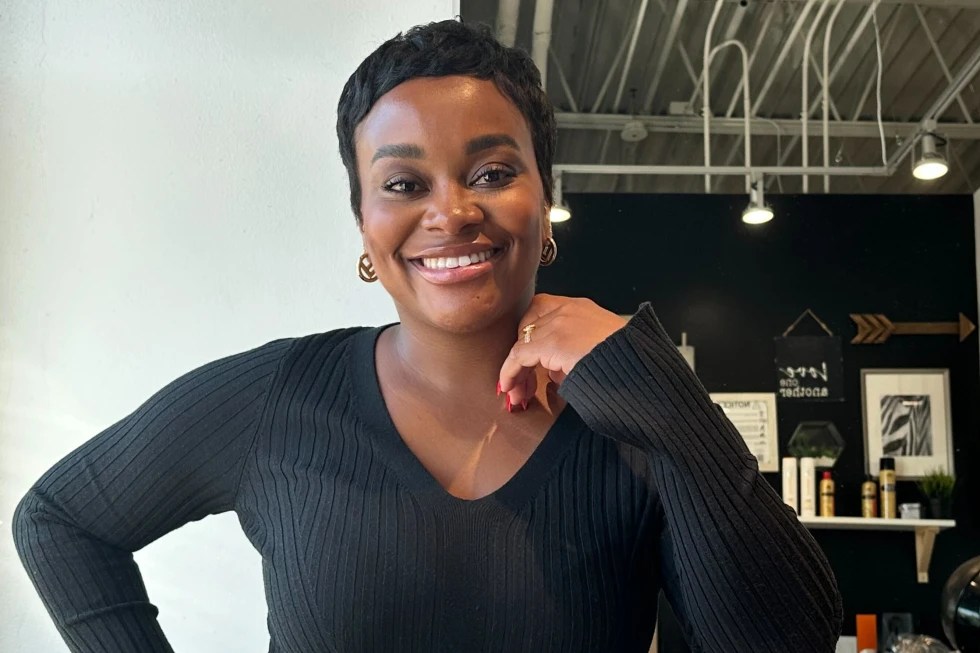The U.S. Food and Drug Administration (FDA) is considering a ban on certain hair-straightening chemicals that have been used by Black women for years and that research shows may increase the risk of uterine cancer.

But Black hair stylists say such products — specifically the ones being looked at by the FDA, which contain formaldehyde and formaldehyde-releasing chemicals — have fallen out of favour, especially among younger generations.
“Relaxers have taken an extreme decline … as we became more knowledgeable about the effects of the relaxer on your hair and what it can do to your hair,” said Kayleigh Butler, a hair stylist in Atlanta who remembers getting relaxers when she was five years old. She added, “I think people just wanted to move away from that and live a healthier lifestyle.”
The FDA is in the first steps of the process: The notice of a possible rule was recently added to its regulatory agenda. The agency aims to publish an advance notice of proposed rulemaking by April 2024, but items can stay on the agenda for years.
The possible rule would apply to both salon-grade and at-home products, FDA spokesperson Courtney Rhodes said.
What about Canada?
Although a ban has not been implemented or proposed in Canada, in 2014 the federal health regulator put in place restrictions on the use of formaldehyde in hair-straightening products, a spokesperson from Health Canada told Global News in an email on Thursday.
The restrictions were meant to “address the known health risks posed by these chemicals. The U.S. does not currently restrict the use of these chemicals in hair-straightening products,” the spokespersons said.
Hair-straightening products sold in Canada that involve blow-drying or flat ironing (which can produce or release formaldehyde vapors) must adhere to a standard where the concentration of formaldehyde does not exceed more 0.01 per cent, the spokesperson said.
“This restriction addresses health concerns related to the inhalation of formaldehyde in non-aerosol cosmetics that release formaldehyde vapours. As a result, the use of hair-straightening products that comply with Health Canada’s requirements is considered safe when used according to the directions of use,” he added.
'Why relaxers right now?'
Jasmine Garcia, who owns Jasmine Nicole Xclusives Hair Salon in Atlanta, estimated that less than five per cent of her clients — who are Black women — want relaxers. She told The Associated Press that a client texted her after learning about the potential ban, saying: “Of all the things the FDA needs to look into, why relaxers right now?”
Earlier this year, U.S. Reps. Ayanna Pressley of Massachusetts and Shontel Brown of Ohio asked the FDA to investigate chemical hair straighteners, pointing to a study published in 2022 from the National Institutes of Health that linked straighteners to an increased risk of uterine cancer. Pressley said in an Oct. 6 statement that the FDA’s possible action is “a win for public health — especially the health of Black women.”
“Regardless of how we wear our hair, we should be allowed to show up in the world without putting our health at risk,” she said.
The FDA posted a video Wednesday on social media, reminding people that no action has been taken yet and that the agency plans to work with and encourage the cosmetics industry to develop alternative straightening products.
In a study from Boston University published this month in the journal Environmental Research, researchers followed nearly 45,000 Black women for up to 22 years, the majority of them moderate or heavy users of relaxers. Among postmenopausal women, those who used relaxers most often had a greater than 50 per cent increased risk of uterine cancer compared to those who never or seldom used them.
Black people have the highest rates of death from cancer, according to data from the U.S. Centers for Disease Control and Prevention. The risks for Black women could shift with better regulation of chemical hair straighteners, said Dr. Kimberly Bertrand, an author of the Boston University study.
She added that FDA action would be a step in the right direction, but that it shouldn’t focus solely on formaldehyde.

“I think consideration of endocrine disrupters like phthalates and parabens would be important, and heavy metals, too,” she said. “Getting rid of formaldehyde in these products certainly is a good thing, but … I don’t know that it renders those products completely safe.”
Dr. Yolanda Lenzy, a dermatologist and licensed cosmetologist who co-authored the Boston University study, also said there’s still some pressure for Black women to have straight hair, especially in conservative job fields like law.
Twenty-four states have some type of law banning discrimination over hairstyles, but Black people have still run into issues, like in Texas, where a high school student was suspended because of his locs.
“I just know so many Black women who’ve made the choices about how they show up in the world based on codes at work, on rules at work, that … their hair has to be presentable,” Lenzy said. “What does that really mean?”
— With files from Global News




Comments